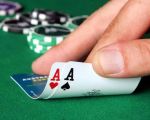- master-basic-blackjack-strategy
- understanding-blackjack-odds-and-house-edge
- card-counting-myths-and-realities
- bankroll-management-discipline-and-psychology
- choosing-the-right-blackjack-table
1. Master Basic Blackjack Strategy
If you're wondering how to increase your chances of winning at blackjack, the first and most essential step is learning basic strategy. Unlike games of pure luck, blackjack involves mathematical decision-making. There is a statistically optimal move for every hand you can be dealt, based on the dealer’s up card.
Using a basic strategy chart—easily found and memorized—you can significantly reduce the house edge, often to less than 1%. This chart tells you exactly when to hit, stand, double down, or split. For example, if you have a hard 16 and the dealer is showing a 10, basic strategy advises you to hit. The decisions may seem counterintuitive, but they’re backed by thousands of simulations and real-world outcomes.
Professional players like Don Johnson, who famously beat Atlantic City casinos for over $15 million in 2011, attribute a big part of their edge to religiously sticking to basic strategy. It's the foundation—without it, all other tactics fall short.
2. Understanding Blackjack Odds and House Edge
Many casual players assume blackjack is just about getting close to 21, but the true game lies in understanding probability. The odds shift with every card dealt, making blackjack one of the rare casino games where your decisions directly affect outcomes.
The house edge in a standard six-deck blackjack game is around 0.5% when using perfect basic strategy. However, that edge can quickly rise to over 2% if you make frequent mistakes. Even small misplays—like splitting 10s or hitting a 12 against a 4—can add up to major losses over time.
Keep an eye on specific game rules too. Tables that pay 6:5 on blackjacks instead of 3:2, limit doubling, or reshuffle frequently can significantly hurt your winning potential. To optimize your chances, always scout the rules before sitting down.
3. Card Counting: Myths and Realities
No discussion about how to increase your chances of winning at blackjack is complete without touching on card counting. It’s often glamorized in movies like *21*, but the reality is more nuanced. Card counting isn’t illegal, but casinos have the right to refuse service or ban suspected counters.
Card counting works by keeping track of the ratio of high to low cards remaining in the deck. When there are more tens and aces left, your odds of getting a natural blackjack—and thus a 3:2 payout—are better. That’s when you increase your bets.
That said, it’s not a magic bullet. Effective card counting requires near-perfect focus, memory, and subtlety. As one former casino dealer put it: “You can spot amateurs a mile away—nervous, overly deliberate. The real pros look relaxed, like tourists who just happen to be on a winning streak.”
If you're curious to explore this further, sites like CasinoScope provide learning tools, card counting drills, and even community discussions on stealth techniques and counter-surveillance tactics.
4. Bankroll Management, Discipline, and Psychology
Winning at blackjack isn’t just about math—it’s about managing your emotions and resources. Even the best strategy can’t overcome reckless betting or frustration-fueled decisions. Bankroll management means setting strict loss and win limits, knowing how much you can afford to bet per hand, and walking away when necessary.
A popular model is the 1–3–2–6 betting system, which minimizes risk while allowing you to ride hot streaks. More importantly, it helps prevent tilt—a state of emotional frustration where players start chasing losses.
Personal discipline is often what separates short-term winners from consistent earners. Ryan, a DC-based tech consultant who plays blackjack recreationally, says: “I treat it like poker—never bring more money than I’m prepared to lose, and I always know my exit point. If I’m up 50%, I cash out.”
5. Choosing the Right Blackjack Table
Not all blackjack tables are created equal. Choosing the right one can significantly impact your results. Look for games that use fewer decks (single or double-deck are best), pay 3:2 on blackjacks, allow doubling after splitting, and have favorable surrender rules.
Avoid tables with continuous shuffling machines (CSMs) if you’re planning on applying advanced techniques like card counting. These machines eliminate any long-term statistical advantage by constantly reintroducing cards into the deck.
If you’re playing online, the same logic applies. Choose platforms that clearly state their rules and RNG fairness certifications. Trusted platforms and reviews can be found through resources like CasinoScope, which also compares house edges across different virtual tables.
Ultimately, where you play is just as important as how you play. Even the most skilled player can’t beat a table stacked with unfavorable rules.








